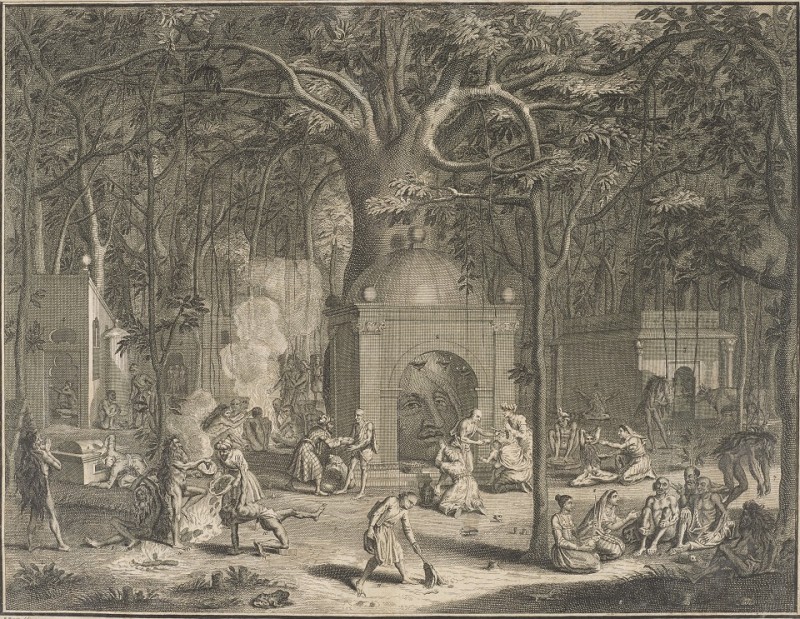I just started (binge) watching the USA show Mr. Robot. It's good. You should watch it. One thing really like about the show is that it often turns critical attention the language of freedom and choice in our society. The whole show is really built on the question of how free we are in modern … Continue reading UPDATED: The AAR Vice Presidential Election and the Illusion of Choice
Tag: theory
How To Rid Yourself of a Constructivist Argument in 3 Easy Steps
Step one: Assert that the constructivist is saying nothing new. A constructivists' criticisms are obviously true and we know this already and we’ve already incorporated them into our work and so all this is old news Step two: Assert that the constructivist is wrong. These criticisms are obviously false because they misrepresent how real people (ie., not … Continue reading How To Rid Yourself of a Constructivist Argument in 3 Easy Steps
Hindoos, Hindus, Spelling, and Theory
What is the relationship between spelling and theory? I often tell people my research is about "Hinduism in nineteenth century America." But it's really not. It's not about Hinduism at all. It can't be because the idea of "Hinduism," a world religion comparable to other world religions, isn't invented until the late nineteenth century. That's … Continue reading Hindoos, Hindus, Spelling, and Theory
“Native” is not a native term
A colleague on categories of practice and categories of analysis: That this distinction between practice and analysis is itself a form of identification for that thing we come to call the academy is certain (for we can indeed study the social practice of scholarship itself, no?), but I would argue that the result of these … Continue reading “Native” is not a native term
AAR Redux: Roundups, NY Times Story, Twitter Fail, and Butchering the Elephant #sblaar
The American Academy of Religion's annual shindig is over and with Thanksgiving in the rear view mirror and a fridge full of leftovers it's back to work. I won't do a full recap, but I will say that my favorite two panels were both "author meets critics" style. One on Tracy Fessenden's Culture and Redemption … Continue reading AAR Redux: Roundups, NY Times Story, Twitter Fail, and Butchering the Elephant #sblaar
WaPo Column Ignores History, Colonialism, and the Problem of Religion
The Washington Posts' foreign affairs columnist David Ignatius has written a remarkably simplistic column based on the findings of the Pew Research Center. Here's how it starts: God had a good convention: The Almighty’s name was mentioned (albeit at the last minute) in the platform at the Democratic National Convention. And He was invoked no … Continue reading WaPo Column Ignores History, Colonialism, and the Problem of Religion
James Freeman Clarke and the Post-Protestant Metaphysical Roots of Comparative Religion in America
I came across this on page 1 of James Freeman Clarke's Ten Great Religions (1871): [The present work] is an attempt to compare the great religions of the world with each other. When completed, this comparison ought to show what each is, what it contains, wherein it resembles the others, wherein it differs from the … Continue reading James Freeman Clarke and the Post-Protestant Metaphysical Roots of Comparative Religion in America
Should we compare American Atheism and American Christianity?: An Impromptu Twitter Discussion
The following conversation emerged on Twitter between myself and Per D. Smith, a Ph.D. candidate at Boston University. Check out Per's great stuff over at irritually. Per specializes in studying irreligion and so I sent him a link to a CNN article and, well, click on the storify link and you can see what ensued. … Continue reading Should we compare American Atheism and American Christianity?: An Impromptu Twitter Discussion
Transcendentalists and the Smoke Monster of Religion
I've made it to the Transcendentalists! The chapter on Unitarian and evangelical ideas about Hinduism is done and passed along to The Adviser. Now, I'm changing gears. The chapters I've written so far were exercises in uncovering. Only a couple previous studies had looked at the materials and so my basic work was to dig … Continue reading Transcendentalists and the Smoke Monster of Religion
How to write a book about “X in American Religious History”
It's not as hard to write a book in American religious history as you might think. Feel free to use this handy template. Introduction- X has been important throughout American religious history. Chapter 1. What the Puritans said about X Chapter 2. What Jonathan Edwards (and maybe George Whitefield) said about X Chapter 3. How … Continue reading How to write a book about “X in American Religious History”








